Ford Puma vs Omoda 5 – erot ja hinnat vertailussa
Vertaa tehoa (168 hv vs 204 hv), tavaratilaa ja hintaa (30100 € vs 28100 € ) yhdellä silmäyksellä. Kumpi auto on sinulle parempi valinta, Ford Puma vai Omoda 5?
Kustannukset ja kulutus
Hinta ja tehokkuus ovat usein ensimmäiset valintakriteerit auton ostossa. Tässä näkyy, kumpi malli on pitkällä aikavälillä edullisempi – tankatessa, ladatessa tai hankintahinnassa.
Omoda 5 on hinnassa melkein huomaamaton edullisempi – sen lähtöhinta on 28100 € , kun taas Ford Puma maksaa 30100 € . Ero on noin 1980 €.
Myös polttoaineenkulutuksessa näkyy ero: Ford Puma kuluttaa 5.40 L ja on siten ilmeinen taloudellisempi kuin Omoda 5, jonka kulutus on 7.50 L. Ero on noin 2.10 L /100 km.
Moottori ja suorituskyky
Teho, vääntömomentti ja kiihtyvyys kertovat paljon auton ajotuntumasta. Tässä näkyy, kumpi tarjoaa enemmän ajamisen iloa.
Moottoritehossa Omoda 5 on hieman etulyöntiasemassa – 204 hv verrattuna 168 hv:een. Ero on noin 36 hv hv.
Kiihdytyksessä 0–100 km/h Ford Puma on tuskin havaittava nopeampi – se saavuttaa 100 km/h ajassa 7.40 s, kun taas Omoda 5 tarvitsee 7.80 s. Ero on noin 0.40 s sekuntia.
Huippunopeudessa Omoda 5 on kevyt edellä – se yltää 220 km/h:een, kun taas Ford Puma saavuttaa 210 km/h. Ero on noin 10 km/h.
Vääntömomentti on sama molemmissa – 290 Nm.
Tila ja käytännöllisyys
Tehon ohella arjessa ratkaisevat mukavuus ja käytännöllisyys. Tässä selviää, kumpi auto on monipuolisempi ja tilavampi.
Molemmissa autoissa on tilaa 5 henkilölle.
Tavaratilan koossa Ford Puma tarjoaa selvä enemmän – 523 L verrattuna 0 L:een. Ero on noin 523 L.
Maksimikantavuudessa Ford Puma pärjää hieman paremmin – jopa 1283 L, noin 208 L enemmän kuin Omoda 5.
Kuka voittaa datavertailun?
Ford Puma näyttää pieniä mutta selviä vahvuuksia objektiivisessa datavertailussa.
Tämä arvio kertoo vain, kumpi malli kerää enemmän pisteitä paperilla – ei kumpi näistä kahdesta autosta tuntuu sinulle oikealta.
Kustannukset ja kulutus
Näytä yksityiskohtainen analyysi
Moottori ja suorituskyky
Näytä yksityiskohtainen analyysi
Mitat ja kori
Näytä yksityiskohtainen analyysi
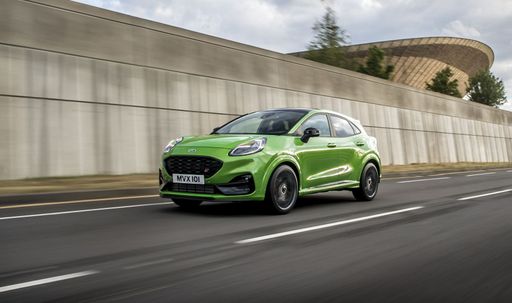
Ford Puma
Ford Puma
Ford Puma on ketterä ja trendikäs pieni crossover, joka yhdistää persoonallisen muodon ja arkikäytössä toimivan fiksuuden. Ajettavuus on yllättävän eläväistä ja sisustus ovelan käytännöllinen — erinomainen valinta ostajalle, joka haluaa arkeen ripauksen hauskuutta ilman turhaa pröystäilyä.
Tiedot
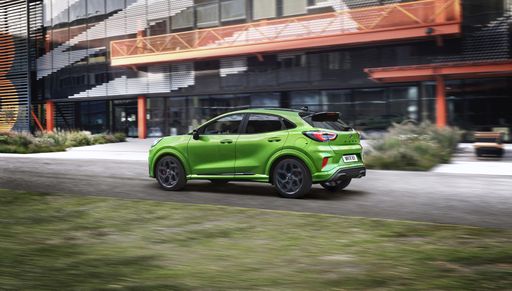
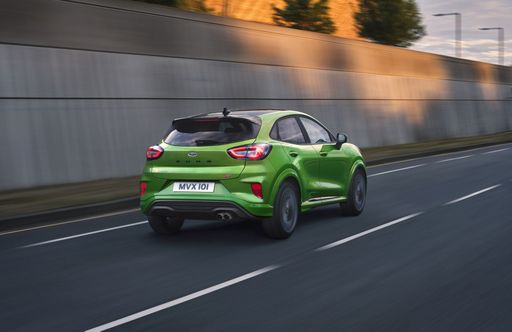
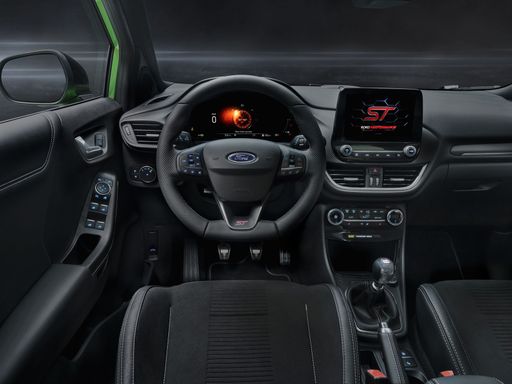
Omoda 5
Omoda 5 näyttää siltä, että se haluaisi erottua ruuhkasta — kantikas muotoilu ja näyttävä keula antavat sille persoonallisen ja raikkaan ilmeen. Sisältä se yllättää premium-tunnelmalla ja käytännöllisyydellä, joten se kiinnostaa ostajaa, joka haluaa persoonallisen kaupunkiauton ilman turhaa hienostelua.
Tiedot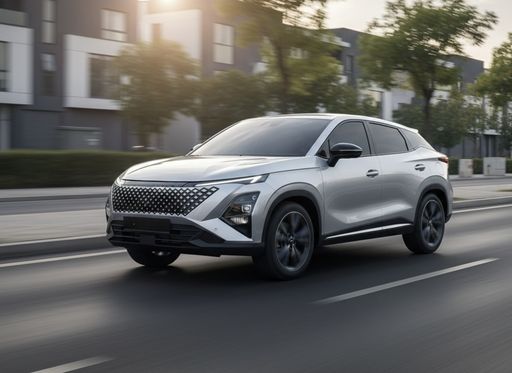
Kustannukset ja kulutus |
|
|---|---|
|
Hinta
30100 - 44200 €
|
Hinta
28100 €
|
|
Kulutus L/100km
5.4 - 5.9 L
|
Kulutus L/100km
7.50 L
|
|
Kulutus kWh/100km
13.1 - 13.9 kWh
|
Kulutus kWh/100km
-
|
|
Sähköinen toimintasäde
361 - 376 km
|
Sähköinen toimintasäde
-
|
|
Akun kapasiteetti
43 kWh
|
Akun kapasiteetti
-
|
|
CO2
0 - 135 g/km
|
CO2
-
|
|
Polttoainesäiliön tilavuus
42 L
|
Polttoainesäiliön tilavuus
51 L
|
Mitat ja kori |
|
|---|---|
|
Kori
SUV
|
Kori
SUV
|
|
Istuimet
5
|
Istuimet
5
|
|
Ovet
5
|
Ovet
5
|
|
Omamassa
1316 - 1563 kg
|
Omamassa
-
|
|
Tavaratila
456 - 523 L
|
Tavaratila
0 L
|
|
Pituus
4186 - 4226 mm
|
Pituus
4424 mm
|
|
Leveys
1805 mm
|
Leveys
1830 mm
|
|
Korkeus
1550 - 1555 mm
|
Korkeus
1588 mm
|
|
Maksimi tavaratila
1216 - 1283 L
|
Maksimi tavaratila
1075 L
|
|
Kantavuus
367 - 469 kg
|
Kantavuus
-
|
Moottori ja suorituskyky |
|
|---|---|
|
Moottorityyppi
Sähkö, Bensiini MHEV
|
Moottorityyppi
Bensiini
|
|
Vaihteisto
Automaatti, Manuel
|
Vaihteisto
Automaatti
|
|
Vaihteiston lisätiedot
Alennusvaihteisto, Manuaalivaihteisto, Kaksoiskytkin automaatti
|
Vaihteiston lisätiedot
Kaksoiskytkin automaatti
|
|
Vetotapa
Etuveto
|
Vetotapa
Etuveto
|
|
Teho hv
125 - 168 hv
|
Teho hv
204 hv
|
|
Kiihtyvyys 0-100 km/h
7.4 - 9.8 s
|
Kiihtyvyys 0-100 km/h
7.80 s
|
|
Huippunopeus
160 - 210 km/h
|
Huippunopeus
220 km/h
|
|
Vääntömomentti
170 - 290 Nm
|
Vääntömomentti
290 Nm
|
|
Sylinterien lukumäärä
3
|
Sylinterien lukumäärä
4
|
|
Teho kW
92 - 124 kW
|
Teho kW
145 kW
|
|
Iskutilavuus
999 cm3
|
Iskutilavuus
1598 cm3
|
Yleistä |
|
|---|---|
|
Mallivuosi
2025
|
Mallivuosi
2024
|
|
CO2-tehokkuusluokka
A, D
|
CO2-tehokkuusluokka
-
|
|
Merkki
Ford
|
Merkki
Omoda
|
Onko Ford Puma saatavana eri vetotavoilla?
Mallia tarjotaan Etuveto-versiona.
